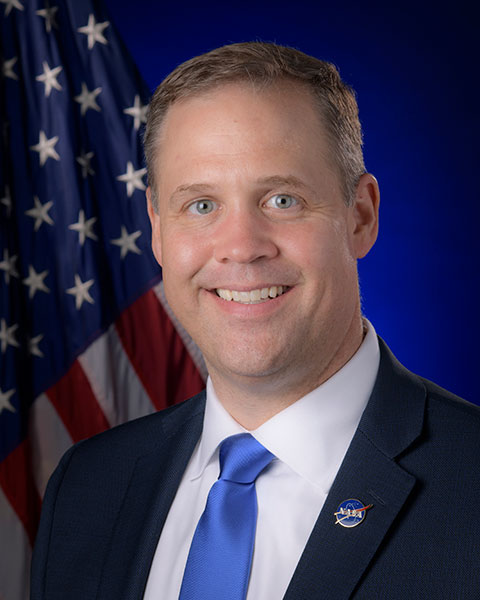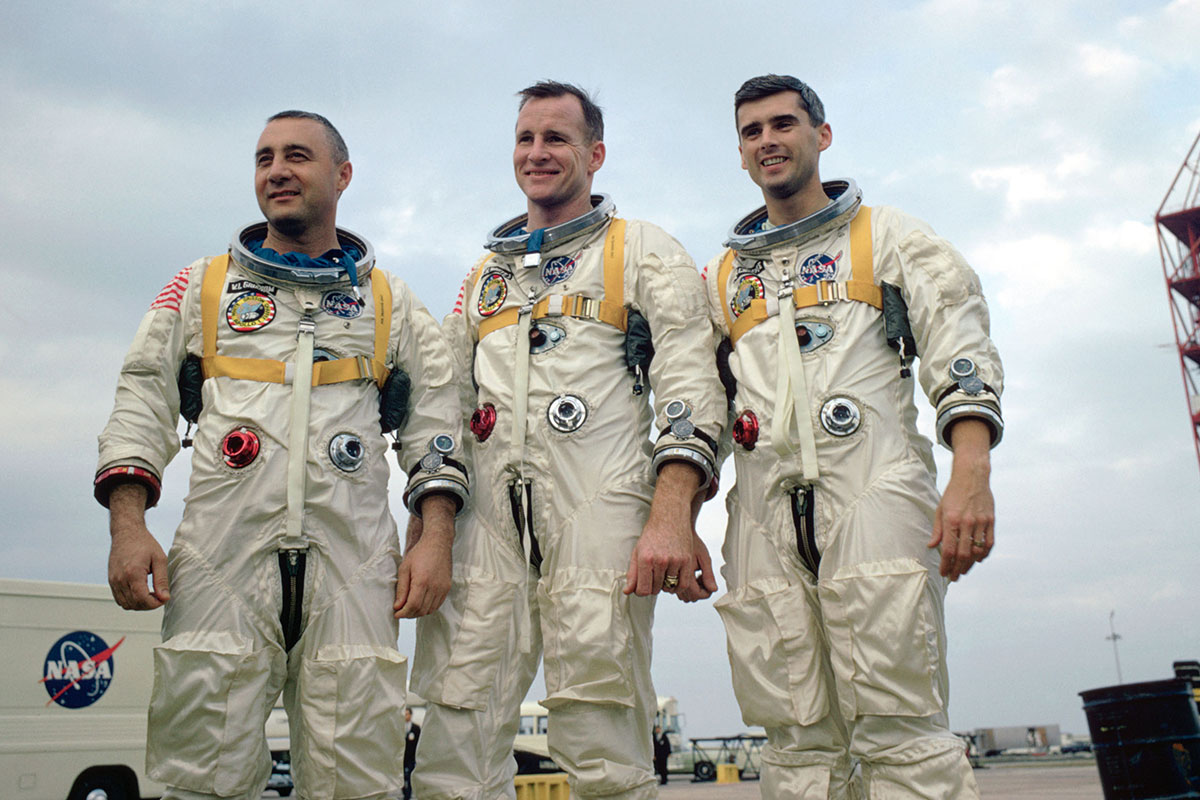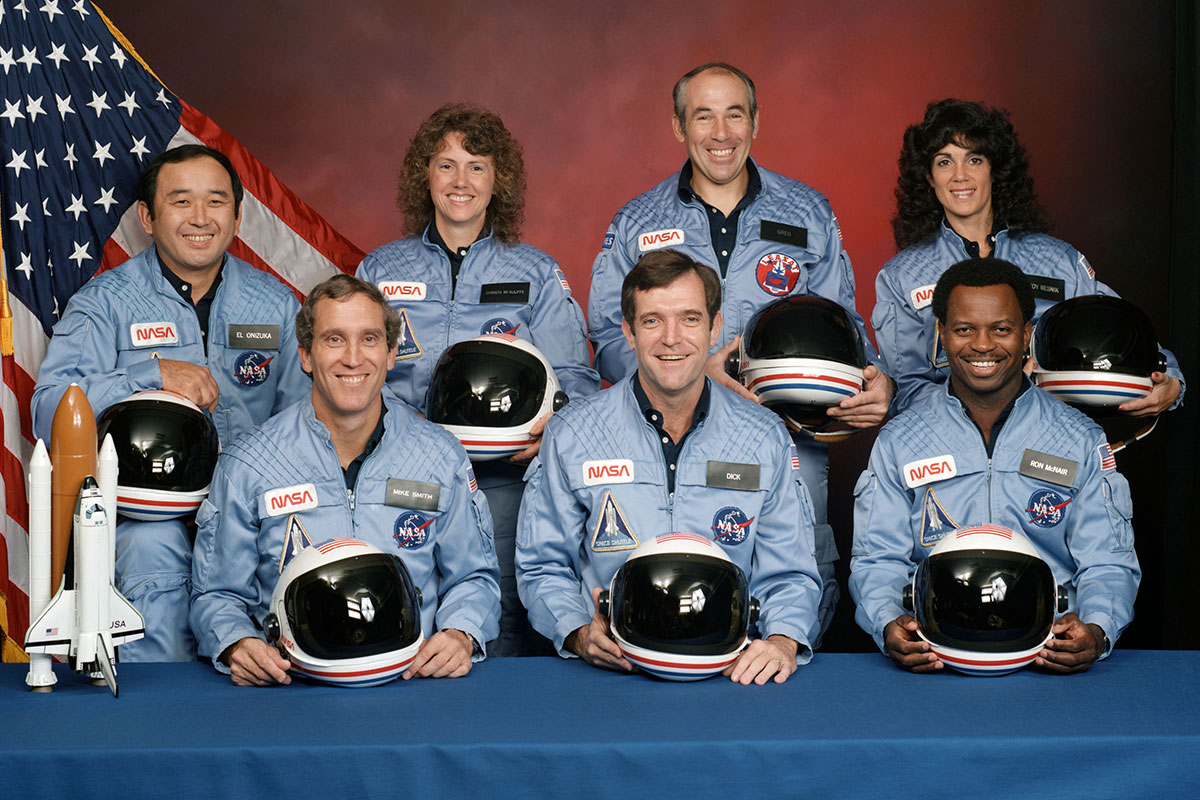Each January NASA pauses to honor members of the NASA family who lost their lives while furthering the cause of exploration and discovery, including the crews of Apollo 1 and space shuttles Challenger and Columbia. In 2020, the Day of Remembrance will be observed on Jan. 30.
As we eagerly anticipate embarking on the next era of exploration, let us pause today to reflect on the legacy and memory of our friends and colleagues who have given their lives to advance humanity to new frontiers. There is much we can learn from their courage and selfless sacrifice.
NASA’s Day of Remembrance gives all of us an opportunity to thoughtfully reflect on the lessons of the past and extend our heartfelt gratitude to these heroes who risked everything for greater human achievement. The unforgiving nature of space and aeronautics testing have claimed the lives of many who dared slip the bonds of Earth and reach for greater heights. Sadly, era-defining exploration and scientific advancements sometimes come at a terrible price. Today, NASA solemnly remembers the crews of Apollo 1, Challenger, Columbia and all those who have lost their lives pushing against the limits of our technological capability.
These men and women laid down their lives in the most noble of goals: the pursuit of truth and understanding. To expand our knowledge of the cosmos is to pursue a better life on Earth for our children, and future generations to come. Although their quest for knowledge was peaceful, fate ripped them from us, never to be returned. We mourn their tragic loss, and we pledge to recommit ourselves to the cause for which they gave their lives.
Each of these tragedies changed NASA. The culture of excellence and safety that the agency benefits from today developed through hard lessons from these accidents. To ensure these lessons are passed on, NASA leadership has determined that all civil servants will take annual safety training starting this year in conjunction with Day of Remembrance. Soon you will receive a case study of the Apollo 1 accident that took the lives of astronauts Gus Grissom, Ed White and Roger Chaffee. I encourage everyone to thoughtfully review what transpired and discuss with your team what we can learn. Next year a different case study of another accident will be sent to ensure these lessons will never be forgotten.
Today, our standards of safety are uncompromising and are informed by the heart-wrenching loss of these heroes we will forever honor on this Day of Remembrance. As we work to return human spaceflight to our nation this year by once again launching American astronauts on American rockets from American soil, it is vital that we continue to implement the lessons of the past into our preparations.
Ours is a tough profession, where perilous voyages are piloted by women and men of supreme courage and superior dedication. Such individuals are rare, but our fallen heroes are chief among them. Their lives moved us closer to fulfilling that ancient desire to peer behind the curtain of the unknown, and so doing they have moved all of humanity closer together.
May we ever strive to emulate their lives.
Ad astra,
Jim Bridenstine

Jim Bridenstine Administrator, National Aeronautics and Space Administration Image Credit: NASA/Bill Ingalls
On Jan. 27, 1967, veteran astronaut Gus Grissom, first American spacewalker Ed White, and rookie Roger Chaffee were sitting atop the launch pad for a pre-launch test when a fire broke out in their Apollo capsule.
The investigation into the fatal accident led to major design and engineering changes, making the Apollo spacecraft safer for the coming journeys to the Moon.

Apollo 1 Crew (l-r): Virgil I. Grissom, Edward H. White, Roger B. Chaffee
Image Credit: NASA
Just 73 seconds after launch on the morning of Jan. 28, 1986, a booster engine failed and caused the Shuttle Challenger to break apart, taking the lives of all seven crewmembers.
President Ronald Reagan eulogized the crew, quoting from the poem "High Flight": "We will never forget them, nor the last time we saw them, this morning, as they prepared for the journey and waved goodbye and 'slipped the surly bonds of earth' to 'touch the face of God.'"

STS-51L Crew (l-r): Mission Specialist Ellison S. Onizuka, Pilot Michael J. Smith, Payload Specialist Christa McAuliffe, Commander Francis R. “Dick” Scobee, Payload Specialist Gregory B. Jarvis, Mission Specialist Judith A. Resnik, Mission Specialist Ronald E. McNair.
Image Credit: NASA
The seven-member crew of the STS-107 mission was just 16 minutes from landing on the morning of Feb. 1, 2003, when Mission Control lost contact with the shuttle Columbia. A piece of foam, falling from the external tank during launch, had opened a hole in one of the shuttle's wings, leading to the breakup of the orbiter upon re-entry.
Addressing the nation, President Bush said, "mankind is led into the darkness beyond our world by the inspiration of discovery and the longing to understand. Our journey into space will go on."

STS-107 Crew (l-r): Mission Specialist 1 David M. Brown, Commander Rick D. Husband, Mission Specialist 4 Laurel Blair Salton Clark, Mission Specialist 2 Kalpana Chawla, Payload Commander Michael P. Anderson, Pilot William C. McCool, Payload Specialist 1 Ilan Ramon,
Image Credit: NASA